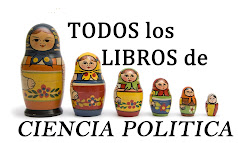By Matt Ridley
Publisher: HarperAudio 2003-04 | ISBN: 0060544473 | Language: English | Audio CD in MP3 | 138 MB
February, 2001, it was announced that the human genome contains not 100,000 genes, as originally expected, but only 30,000. This startling revision led some scientists to conclude that there are simply not enough human genes to account for all the different ways people behave; we must be made by nurture, not nature. Yet again biology was to be stretched on the Procrustean bed of the nature-nurture debate. Matt Ridley argues that the emerging truth is far more interesting than this myth. Nurture depends on genes, too, and genes need nurture. Genes not only predetermine the broad structure of the brain, they also absorb formative experiences, react to social cues, and even run memory. They are consequences as well as causes of the will.
Nature Via Nurture chronicles a revolution in our understanding of genes. Ridley recounts the hundred years' war between the partisans of nature and nurture to explain how this paradoxical creature, the human being, can be simultaneously free-willed and motivated by instinct and culture.
Read by Matt Ridley.
In the follow-up to his bestseller, Genome, Matt Ridley takes on a centuries-old question: is it nature or nurture that makes us who we are? Ridley asserts that the question itself is a "false dichotomy." Using copious examples from human and animal behavior, he presents the notion that our environment affects the way our genes express themselves.
Ridley writes that the switches controlling our 30,000 or so genes not only form the structures of our brains but do so in such a way as to cue off the outside environment in a tidy feedback loop of body and behavior. In fact, it seems clear that we have genetic "thermostats" that are turned up and down by environmental factors. He challenges both scientific and folk concepts, from assumptions of what's malleable in a person to sociobiological theories based solely on the "selfish gene."
Ridley's proof is in the pudding for such touchy subjects as monogamy, aggression, and parenting, which we now understand have some genetic controls. Nevertheless, "the more we understand both our genes and our instincts, the less inevitable they seem." A consummate popularizer of science, Ridley once again provides a perfect mix of history, genetics, and sociology for readers hungry to understand the implications of the human genome sequence. --Therese Littleton
Thanks to original uploader!
DoWnLoAd FiLe
mirror
mirror
>>:: NO PASSWORD ::<<
mirror
Part 1 | Part 2








Publicar un comentario